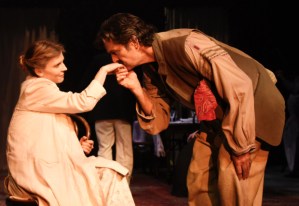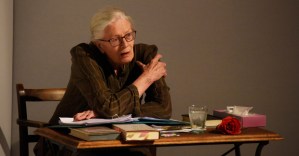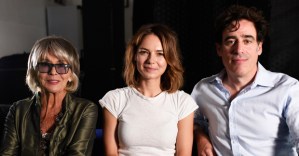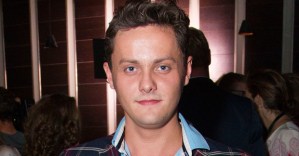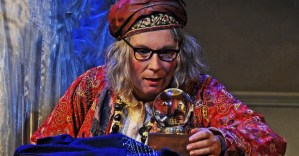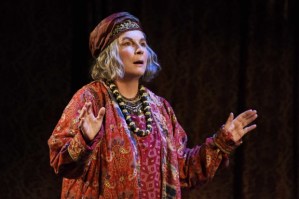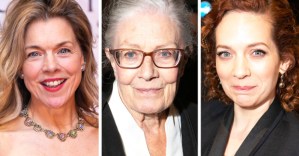Review: Uncle Vanya (Theatre Royal Bath)
David Hare’s new adaptation of the Chekhov play opens in Bath, directed by Rupert Everett
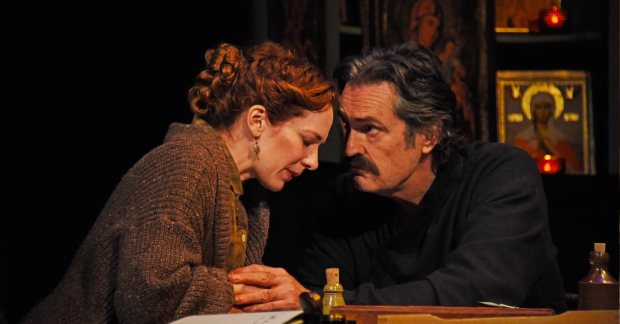
© Nobby Clark
One-time Hollywood star Rupert Everett brings an Eeyore-esque quality to the titular role in his own production of Chekhov's funny, poignant play about a life (or two, or three) of stagnation and regret.
However it is his talent as a director – which can also be seen in his feature film The Happy Prince – that is much more notable than his talent as an actor here. He brings together a team that includes a very strong cast, some superb designs and a haunting, penetrating soundscape, and it would be difficult to guess that it was his first time directing for the stage.
The show begins with Vanya behind a wafting, ghost-like curtain taking a piss and the curtain rises, with barely a shimmer, on faint chatter and the warm glow of colours from Charles Quiggin's foliage-infused set. Trees and blossoms hang like ribbons from the rafters in the first half, while in the second, one wall of the house of Sonya and Uncle Vanya lifts to reveal a stark, beautiful landscape beyond their confinement and the drudgery of their lives. The set is very striking and, along with John Leonard's subtle but very present touches of everyday sound and lilting music, makes this production.
In the main, David Hare's new adaptation whizzes and imbues Chekhov's sharp observations with a new lease of life and a direct relevancy to today, all helped by nicely paced injections of humour and melodrama. Vanya and Sonya's lives are turned upside down one summer when Sonya's father, an ageing, ill and famous academic, comes back to live with them, bringing his new, young and beautiful wife Yelena. Vanya falls hopelessly in love with Yelena, as do most of the men in the household, and the doctor keeps visiting – a cause of both delight and distress to Sonya, who is all but ignored by him. The action – or inaction – comes to a climax and then quickly dissipates, with proceedings retreating to the painful but secure banality they were all once familiar with.
It's called Uncle Vanya, yes, but here it should really be called Niece Sonya, as Katherine Parkinson steals the show somewhat, alongside the very excellent John Light as doctor Astrov. Parkinson is a tired but hopeful Sonya, full of sweet charm and no malice at all. It makes the breaking of her heart all the more sad to watch. And Light – here using a crutch following a stage accident – is full of rough poetry and longing. He would make an intriguing Uncle Vanya, too. Clémence Poésy has the nymph-like, ethereal quality needed for Yelena and they are helped by a strong supporting cast.
It is a robust, compelling production and yet while there are some lovely directorial choices, it never quite manages to fly. This is in part due to Everett himself, who teeters on the edge of being a hammed up Vanya rather than a sincere one and regularly throws the balance off for the rest of the show. Vanya is like a side note to proceedings here. But Hare's adaptation also skims over the key characters at the edge of proceedings and we don't feel much for Marina the old nurse or Maria, Vanya's mother. The most enjoyable moments are when Light and Poésy and Light and Parkinson are on together.
This Uncle Vanya does have moments of lyricism alongside many moments of humour, however, and it is a pity its whole is not made by the sum of its parts. But still, there's much to enjoy here nonetheless.


